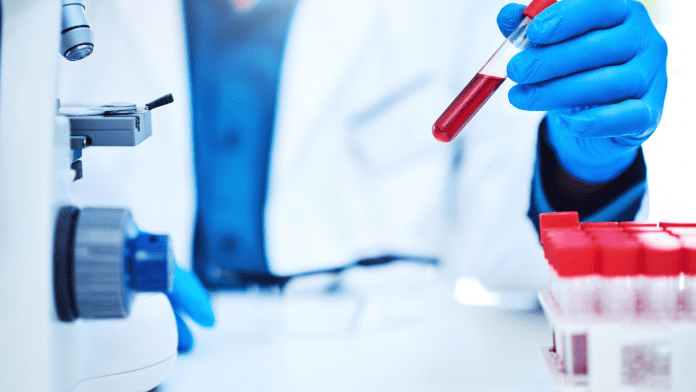
A team of scientists in Germany have developed a new procedure that will help increase coronavirus testing capacity.
The development will help to increase coronavirus testing capacity in order to meet the high demand for testing in the mass screening programmes needed in the early identification and isolation of asymptomatic individuals.
The pooling of samples before testing is a well-established and safe procedure in blood banking and now, the team from the Institute of Virology has adapted and tested this method for use in coronavirus diagnostics.
The development has been published in the journal The Lancet Infectious Diseases.
Sample pooling
In pool testing, samples from several individuals are pooled and tested together in a single tube using sensitive molecular biological detection methods. Only if the pool result is positive do the samples need to be tested individually. When the infection rate is low and only a few people are infected, pool testing can significantly expand the testing capacity of the existing laboratory infrastructure.
Sigrun Smola, Professor of Virology at the Saarland University and Director of the Institute of Virology at Saarland University Hospital, said: “To protect those groups with a high mortality risk from the coronavirus, we need to prevent the introduction of the virus from asymptomatic individuals, including the medical and care staff that look after them.
“Groups most at risk include chronically ill hospital patients, such as those with cardiovascular disease or cancer, the elderly and, most especially, the residents of nursing homes and residential care homes. Prevention is only possible if we use large-scale testing to identify asymptomatic contact persons and thus avert infection of the most vulnerable.”
Up until now, it has not been possible to scale up mass screening programmes, as there was simply not enough testing capacity in the diagnostic labs.
The team has been using the new procedure at Saarland University Hospital in Homburg since mid-March to successfully protect vulnerable patients from infection by asymptomatic SARS-CoV-2 carriers. The success of the pool testing procedure has now led to its use in screening residents and staff at nursing and residential care homes in Saarland.
Sensitive testing methods
The scientist have been exploring whether the pool testing approach sued in blood banking could be applied to coronavirus diagnostics since early March by developing a protocol that involved testing swabs from medical staff that were showing no symptoms of coronavirus and analysing the pooled sample.
Smola said: “Our molecular biological test method (RT-PCR) was so sensitive that we were able to combine samples from up to 30 individuals in a single test tube. Even if only one person in that group of thirty was infected, we still obtained a positive result for the pooled test. If a pool had a positive result, we then conducted a second phase of testing on the individual samples to identify the infected person or persons.
“If the rate of infection is low and if many of the pools are negative, this can save significant numbers of test kits and increase the test capacity of the existing infrastructure.”
Rolling out the method
In a concerted action with the Saarland Ministry of Health, the pool testing procedure developed in Homburg is now being used to screen residents and staff at 131 nursing and residential care homes in Saarland in order to protect the vulnerable elderly groups in these institutions who are most at risk from coronavirus infection. Around 22,000 people will be tested.
The campaign is a unique co-operation involving the Fraunhofer Institute for Biomedical Technology IBMT, the Helmholtz Institute for Pharmaceutical Research Saarland HIPS, the Saarland Consumer Protection Office (Landesamt für Verbraucherschutz) and the Saarland Care Providers Association (Saarländische Pflegegesellschaft), with the Blood Donation Centre Saar-Pfalz gGmbH offering back-up lab.
Smola added: “We have also received numerous urgent inquiries from hospitals in Germany and abroad, as testing capacity limitations are proving to be a critical issue at this moment.”

























